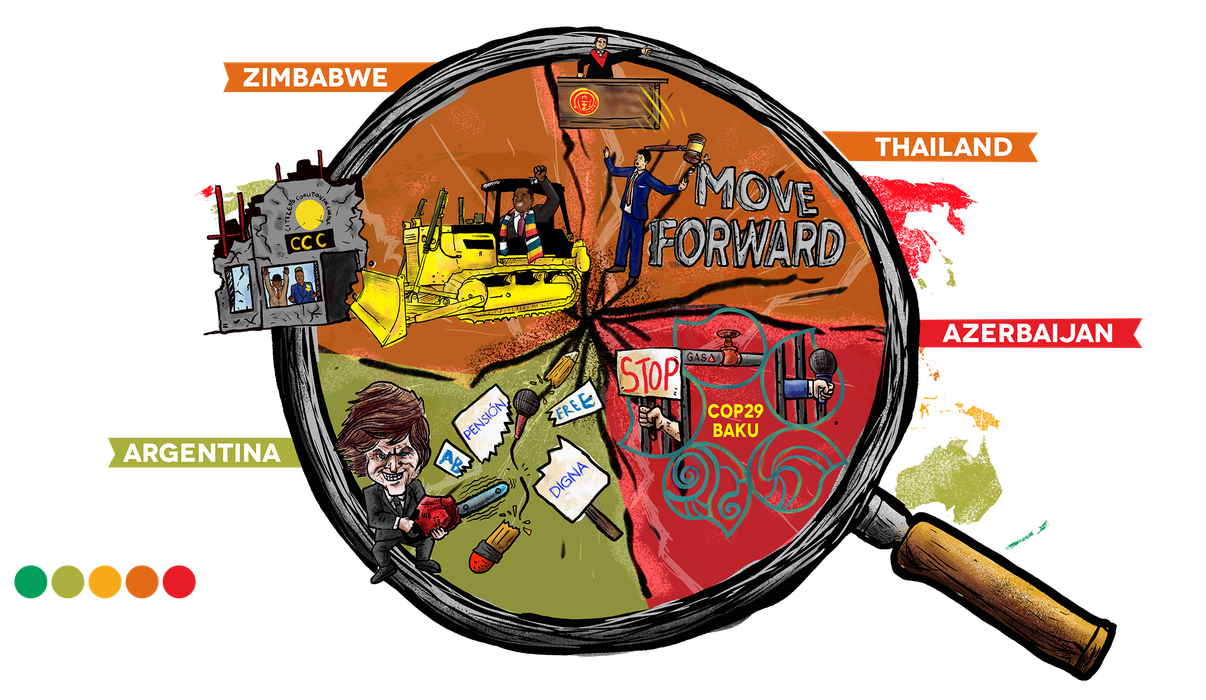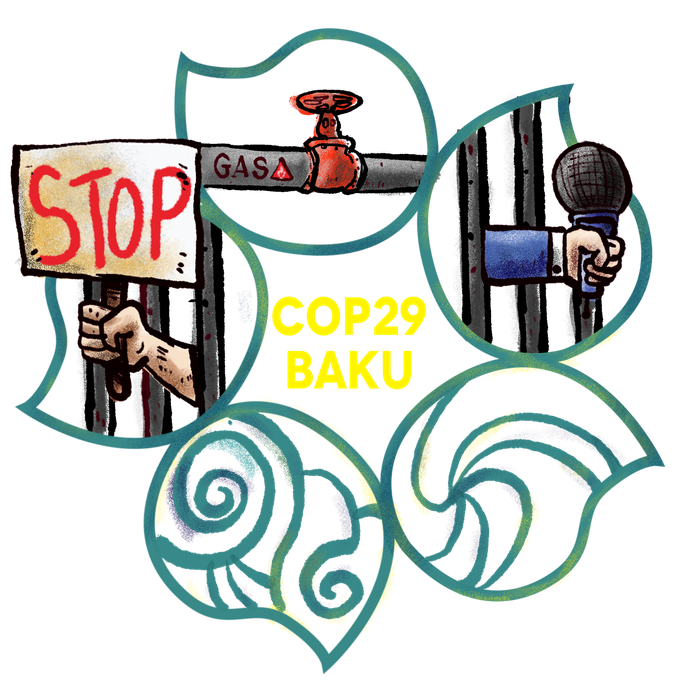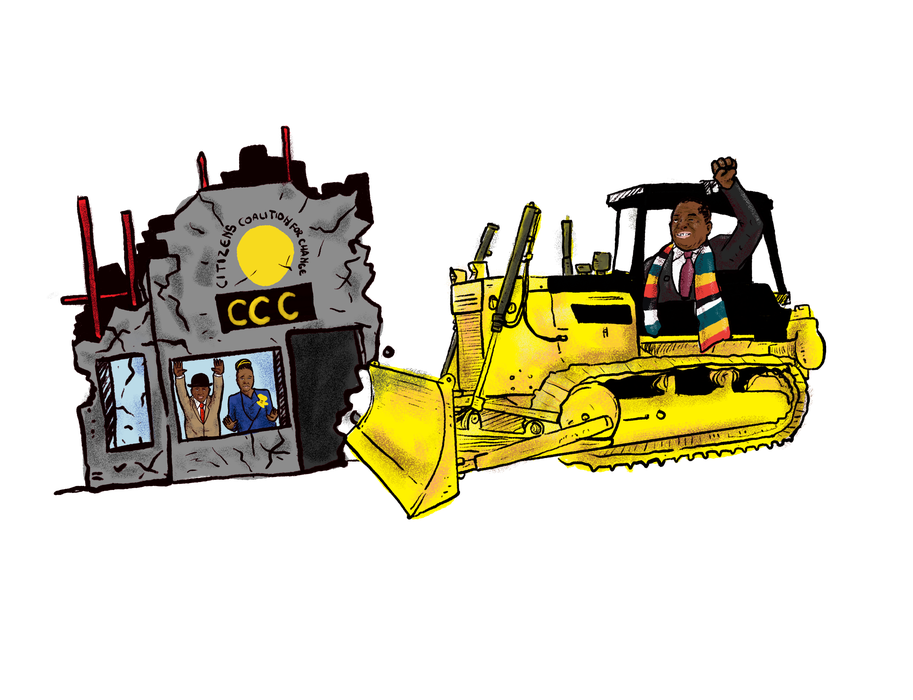Watchlist September 2024

September Watchlist 2024
Latest Update: 23 September 2024 - The new CIVICUS Monitor Watchlist highlights serious concerns regarding the exercise of civic freedoms in Argentina, Azerbaijan, Thailand and Zimbabwe.
The Watchlist draws attention to countries where there is a serious decline in respect for civic space, based on an assessment by CIVICUS Monitor research findings, our research partners and consultations with activists on the ground.
In the coming weeks and months, the CIVICUS Monitor will closely track developments in each of these countries as part of efforts to ensure greater pressure is brought to bear on governments. CIVICUS calls upon these governments to do everything in their power to end the ongoing crackdowns immediately and ensure that perpetrators are held to account.
Descriptions of the civic space violations happening in each country are provided below. If you have information to share on civic space in any of these countries, please write to monitor@civicus.org.


Amidst an ongoing economic crisis and social tensions, Argentina’s civic space has deteriorated significantly, with authorities increasingly restricting fundamental freedoms. Protests have been met with violent repression, while journalists and activists are facing heightened levels of attacks, including verbal and physical attacks and intimidation.
Since taking office in December 2023, right-wing President Javier Milei, who describes himself as an adherent of anarcho-capitalism, has introduced changes to carry out structural reforms that prompted large-scale protests across Argentina. Throughout his campaign, Milei pledged drastic cuts in government spending, expressed scepticism about climate change, downplayed systematic human rights violations during the country’s dictatorship, and opposed the decriminalisation of abortion.
On 14th December 2023, the Ministry of Security issued Resolution 943/2023, commonly known as the ‘anti-picket’ protocol, to regulate public order during road blockages. This protocol criminalises demonstrations involving street or road blockades, treating them as crimes against traffic and transportation safety. Enforcement has resulted in violent repression by security forces.

For example, on 12th June 2024, thousands of protesters gathered near the Congress as the Senate debated an omnibus bill to deregulate several sectors, privatise key public enterprises, reduce state spending and weaken labour protection laws.
Initially peaceful, the demonstration took a violent turn when clashes broke out between protesters and security forces. As a result, at least 200 people were injured and 35 protesters were detained on charges such as public intimidation, incitement to violence, and disruption of legislative sessions. Civil society organisations have reported over 600 people injured in the context of protests since December 2023.
On 28th August, 5,000 people took to the streets to protest President Milei’s veto of a pension increase law. Security forces pepper-sprayed protesters with a new chemical agent, causing burns to elderly protesters. At least 30 people were injured and two protesters were detained.
Press freedom organisations have reported escalating threats against journalists following President Milei’s inauguration. At least 47 journalists and media workers have faced physical attacks while covering protests since January.
In June, Justice Minister Mariano Cúneo Libarona filed lawsuits against journalists Darío Villarruel and Nancy Pazos, accusing them of “incitement to commit crimes” over comments about government-stored food supplies controversy.
Further curtailing freedom of expression, on 30th August President Milei issued a decree modifying the Law on Access to Public Information. By reclassifying information as related to the ‘private sphere’ of public officials, the new regulations restrict access to information that should remain publicly accessible by international standards.

In November 2024, world leaders will meet in Azerbaijan for COP29, the United Nations’ global climate conference. This takes place against the backdrop of Azerbaijan’s dire human rights situation — CIVICUS Monitor has categorised the country’s civic space as closed since monitoring began in 2018. Protests, including environmental ones, are routinely suppressed, while critical civil society organisations have been dismantled through arbitrary refusal of registration and restrictions on foreign funding. Independent media no longer operate within the country, and any and all dissenting voices are faced with fabricated criminal charges, travel bans, and frozen bank accounts.
In February and September of this year, Azerbaijan held snap presidential and parliamentary elections, further entrenching the Aliyev regime’s 20-year rule. Amid growing tensions and questions over the legitimacy of these elections, the regime has intensified its crackdown on civic space, with the situation continuing to deteriorate as the climate summit approaches.
As of June 2024, human rights groups estimate that over 300 political prisoners, including 23 journalists, are being held in detention in Azerbaijan.
Among those detained in the recent crackdowns is renowned pro-democracy activist and election observer Anar Mammadli, who was arrested in April 2024 and whose detention was extended on 22nd August. Mammadli was a co-initiator of the “COP29 Climate of Justice” initiative, which sought to use the conference as a platform to draw attention to the country's environmental and human rights problems.
At the end of August 2024, the Azerbaijani researcher and activist Bahruz Samadov was arrested by the security service and charged with high treason. If convicted, he faces 12 to 20 years in prison or even life imprisonment. According to reports, other activists are also being detained and forced to testify against him. The charges relate to Samadov’s criticism of the government’s policy in Nagorno-Karabakh, a disputed territory that Azerbaijan recaptured in late 2023, displacing more than 100,000 ethnic Armenians — a move that was labelled ethnic cleansing in a European Parliament resolution.
On 6th September 2024, freelance journalist Shahla Karim, who was reporting on alleged electoral fraud in the parliamentary elections, was forcibly detained along with an opposition candidate and her aide by around ten men in plain clothes and surgical masks. The three were then driven 180 kilometres to the capital Baku, where they were finally released.



Thailand remains on our Watchlist as the leading opposition party was dissolved and its leaders banned from participating in elections. Activists and critics continue to be jailed or face attacks, including in the Deep South, and transnational repression persists. The election of the new Prime Minister Paetongtarn Shinawatra in August 2024 is not expected to reverse this worrying trend.
On 7th August Thailand’s Constitutional Court dissolved the opposition Move Forward Party - that had won the most seats in the last election - for committing treason by advocating for the reform of Penal Code Article 112 on lèse-majesté (royal defamation) and imposed 10-year political bans on all of its executive members, who were in office from April 2021 to January 2024. Human rights groups believed the decision was ''politically motivated’.
The government has continued to use royal defamation (lèse-majesté) provisions or Article 112 to arrest and convict activists, critics and politicians for insulting the monarchy. According to Thai Lawyers for Human Rights (TLHR), as of 31st July 2024, at least 272 people have been prosecuted in Thailand on royal defamation charges since 2020.
On 18th July, three activists, arrested for singing a protest song, were sentenced to seven years in prison for royal defamation. On 25th July 2024, human rights lawyer Arnon Nampa was sentenced to 4 years jail by the Criminal Court under the lèse-majesté law for two posts on Facebook about the Thai monarchy that he published in early 2021. This is the fourth time Arnon Nampa has been convicted under Article 112. On 31st July 2024, pro-democracy activist Parit “Penguin” Chiwarak was sentenced in absentia to two years in prison for lèse-majesté over comments he posted on his Facebook page.
In the Deep South (southern border provinces), Roning Dolah, a prominent Malay Muslim human rights defender and coordinator with the Duay Jai Group, a group investigating cases of torture and enforced disappearances, was killed In June 2024. Nine other activists in the Deep South could be indicted for sedition and other charges for their participation in a cultural event in the Sai Buri district of Pattani in 2022.
There are also concerns about transnational repression in Thailand. Independent UN experts have expressed grave concern about Vietnam’s request to Thailand to extradite refugee and human rights defender Y Quynh Bdap, who co-founded Montagnards Stand for Justice, an organisation that advocates for indigenous rights in Vietnam. He was sentenced in absentia to 10 years in prison in a trial that did not meet international standards. His extradition hearings are currently ongoing in the Bangkok Criminal Court.

Ahead of the 44th Southern African Development Community (SADC) Summit which took place on 17th August 2024 in Harare, Zimbabwe, where President Mnangagwa was set to assume the bloc’s chairmanship, Zimbabwean authorities escalated a widespread crackdown on opposition members, civil society organisations and activists. Since mid-June 2024, over 160 people have been arrested, including elected officials, opposition members, union leaders, students and journalists, with evidence of torture and other ill-treatment.
The current crackdown began on 16th June 2024, when police arrested and detained 78 members of the Citizens Coalition for Change (CCC), including interim party leader Jameson Timba, during a gathering at Timba’s house to commemorate the International Day of the African Child. Police fired tear gas and beat people with batons, resulting in multiple injuries, including one requiring surgery. The authorities charged the group with “gathering with intent to promote public violence and disorderly conduct.” On 4th September 2024, the court acquitted Jameson Timba and his 77 co-accused of Disorderly Conduct and acquitted 12 of the 77 of all charges. The court however ruled that 65 of them, including Jameson Timba, would proceed to a defence case on the charge of “participating in an unlawful gathering.” The 65 remain in detention at the time of writing this report.
Further incidents followed as police targeted other groups and individuals:

On 24th June 2024, police arrested 44 members of the Zimbabwe National Students Union (ZINASU), including its president, Emmanuel Sitima, and forced them to pay fines for “disorderly conduct” before releasing them. The students were arrested after the police broke up their meeting at which they discussed education policies, leaving some with injuries after alleged severe beatings. Police then re-arrested Sitima for “criminal nuisance” before releasing him the next day on bail.
On 27th June 2024, Zimbabwe’s President Mnangagwa warned against “opposition political parties bent on peddling falsehoods and instigating acts of civil disorder, especially before, during and after regional and world stage events.” Hours later, police outside the Harare Magistrate’s Court beat and arrested peaceful protesters, who were demanding the release of the 78 CCC members arrested at Timba’s house, after they were denied bail.
On 29th June 2024, police also arrested five members of the National Democratic Working Group social justice movement at a private residence in Harare during a meeting to raise funds for impoverished families, but were later released.
On 1st July 2024, police disrupted a memorial service for a CCC member killed in 2022, and on 3rd July 2024, they arrested six members of the Community Voices Zimbabwe media organisation in Gokwe before releasing them without charge.
A particularly alarming incident occurred on 31st July 2024, when state agents forcibly removed four activists from a plane at Robert Gabriel Mugabe Airport and held them incommunicado for nearly eight hours. They are facing charges of disorderly conduct in relation to their participation in a peaceful march outside the Harare magistrate's courts on 20th June 2024 in support of the 78 CCC members who were appearing for their remand hearing as mentioned above. Reports emerged that the activists were tortured during their detention.
In other worrying developments, ruling party ZANU-PF has called for President Emmerson Mnangagwa to extend his stay in office beyond 2028 when his current term is due to expire. On 25th August 2024, the party held a conference to come up with a resolution to request relevant authorities to make the necessary constitutional amendments to allow President Mnangagwa to continue beyond his term despite constitutional barriers. Specifically, party officials suggest that the legislature extend Mnangagwa's number of years for each term or tentatively amend the term limit from two to three, or scrap the term limits altogether. The party’s resolution will be presented to the party leadership at the 21st Annual People’s Conference at the Zimbabwe International Trade Fair Grounds in Bulawayo from 22nd-27th October 2024. While the president has since allayed these fears by affirming his commitment to leave office after completing his second term, ZANU-PF officials continue to push for constitutional amendments to allow him to run for a third term.
